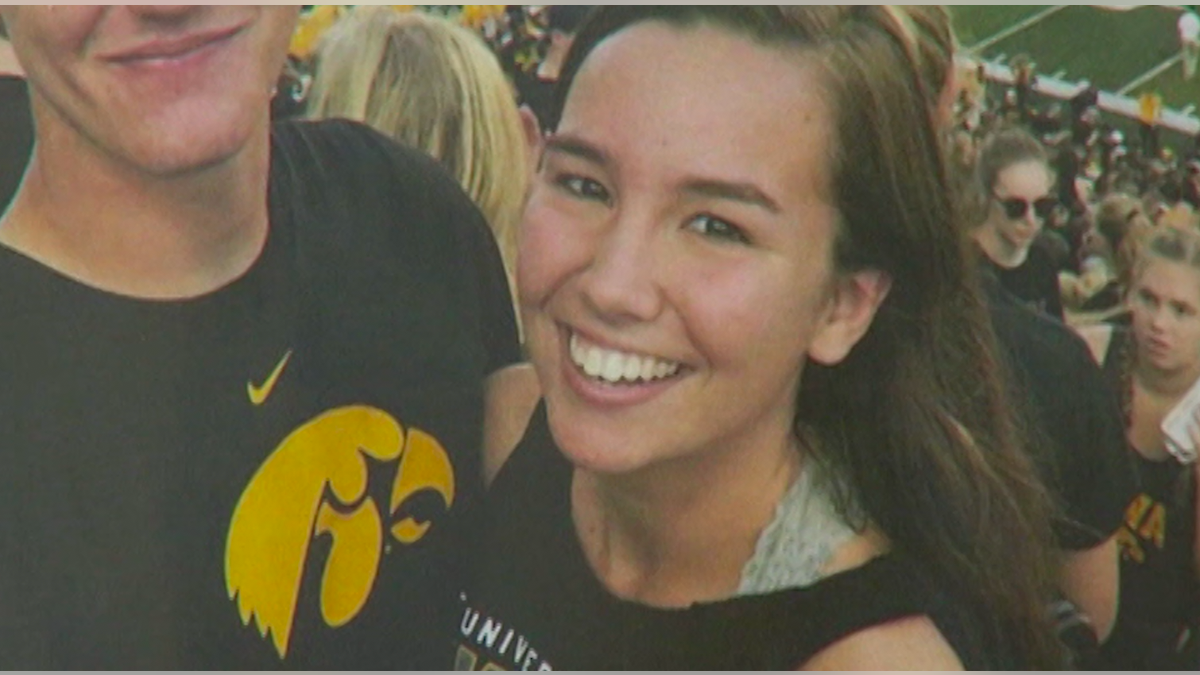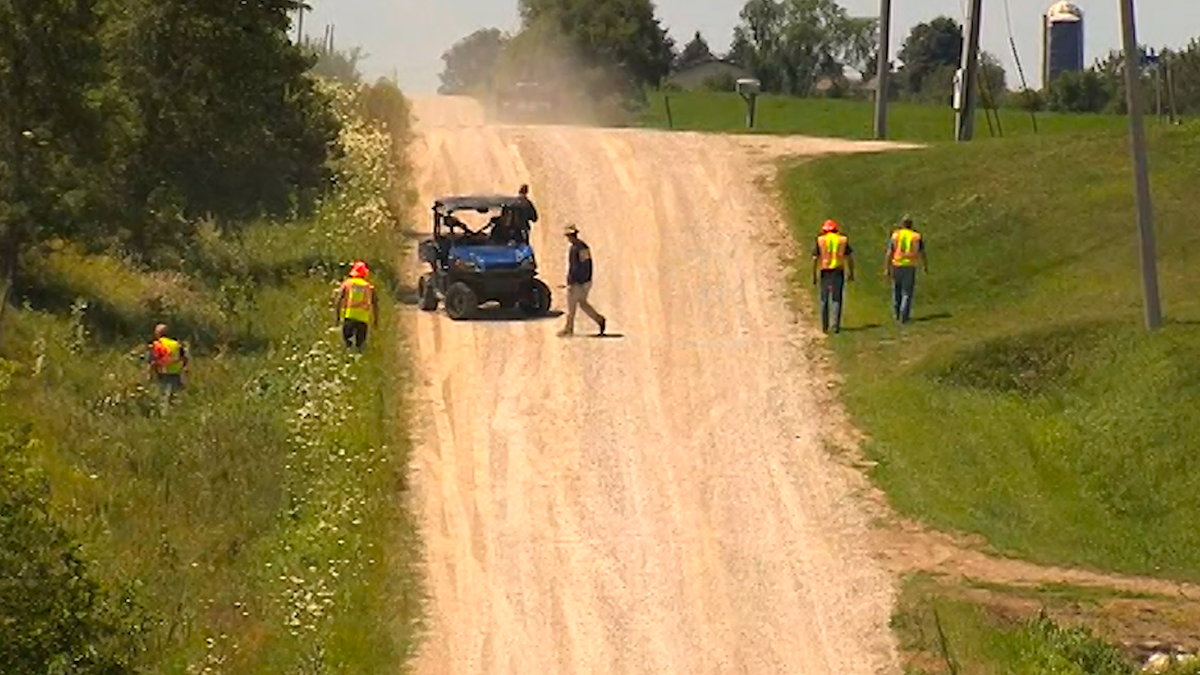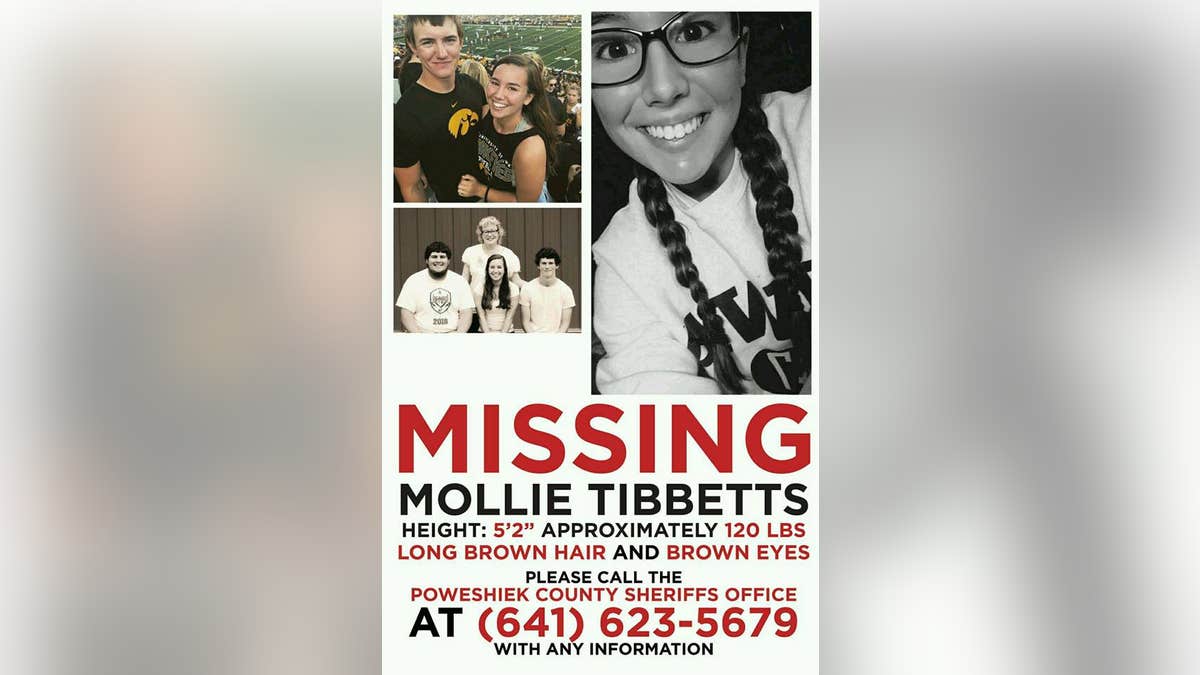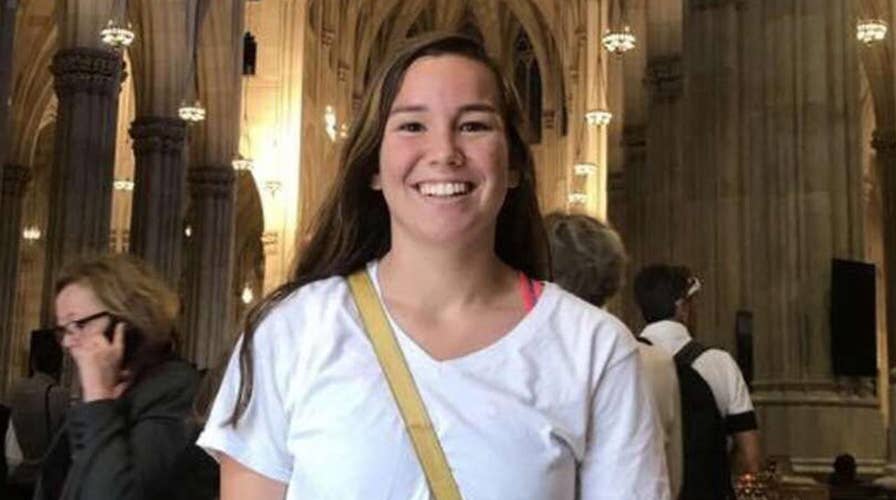Mollie’s dad hopes data can lead them to his daughter
Investigators have called in more manpower to help go through social and electronic data
BROOKLYN, Iowa – When college sophomore Mollie Tibbetts was last seen jogging in her small town of Brooklyn, Iowa on July 18, the avid runner wore a Fitbit to track her distances.
Her father, Rob Tibbetts, believes the small band she wore around her wrist could provide key insight on her whereabouts that day. Her last known communication was a Snapchat she sent her boyfriend.

University of Iowa student Mollie Tibbetts, 20, was last seen on an evening jog on July 18. (Fox News)
It’s unclear whether Fitbit and Snapchat have sent information to authorities to help find her. Neither responded to requests for comment.
Technology now plays a critical role on how a missing person is located, particularly as more and more people are dependent on devices to go about their day. But Tibbets case highlights how those crucial tools also have their limits.
Tibbetts, like many college students, used platforms such as Snapchat, Facebook, Twitter and a slew of electronic devices – all of which use GPS locators or Geotags, which can help users find a wide variety of location-specific information from a device.
But retrieving that information from social media sites and tech firms is not always easy – the companies are not legally required to do so. Doing so, some believe, undermines the privacy of their users. That has sparked back-and-forth battles between tech firms protective of data and law enforcement officials desperate to solve cases.

Search crews have scoured areas around Brooklyn, Iowa where Tibbetts lived, and have now called in additional manpower to sift through electronic data from social media accounts and a physical activity tracker to help them in the search. (Fox News)
“[Mollie] was 20 years old, she lived on those platforms. Everybody knows she was constantly on her phone, and so we really, really need all of that information,” her father told Fox News.
Investigators covering the case have filed dozens of warrants for the Iowa student’s social media accounts, in the hopes they will help find her.
Tech expert Jason Glassberg said the warrant may only cover metadata information, including conversations and social sharing.
“Unfortunately, this is a two-part request,” Glassberg said. “And all of it is time sensitive, both where she was and who were the people who contacted her would all be of interest. But, I think, [legally] the way this plays out is that they separate the location data from the actual context data.”
At times, tech firms and law enforcement officials have battled bitterly for data. In the San Bernardino case, when 14 people were killed and 22 others seriously injured in a 2015 terrorist attack, Apple refused to encrypt its own fingerprint technology software because it felt once that technology was released, it could not be pulled back.
“And, of course, once that happens,” Glassberg said, “all of their security is out the window.”
A third party ended up encrypting the software, without Apple's help.

A reward of more than $220,000 is being offered for information that could lead to finding Tibbetts. (Fox News)
There are a number of ways for networks and law enforcement to locate someone – before a phone is shut off. They can use a triangular effect from the cellphone and GPS to derive the exact longitude and latitude of the individual.
But if the device dies, the options are limited.
“Effectively, once a battery dies, these devices can no longer transmit or receive the information,” Glassberg said, “then the information grows cold.”
Glassberg said Apple may soon release a phone with a direct link to 9-1-1 providers that could potentially run after a battery dies because it would be based on hardware, not on radio cellular communication.
“That one-to-one communication will perhaps give you a lot more accurate and a lot more timely information,” Glassberg said.
Apps like Applepay or one of the few that can use Near Field Communication for mobile payments could also potentially provide insight into a person’s whereabouts.
Investigators on the case say they are prepared and equipped to search electronic data. But they would not say if the tech firms were complying with their requests.
“We have added more manpower with the help of the FBI and we have experts from around the nation offering to assist,” said Richard Rahn, a special agent at the Iowa Department of Public Safety.
Investigators say the fact that Tibbetts is part of a generation whose life revolves around technology should make her easier to track down.
“In some cases, there isn’t a lot to go on. But Mollie is a 20-year-old college student who’s well connect on social and digitally,” said Mitch Mortvedt, an assistant director at the department, “so we are hopeful.”









































